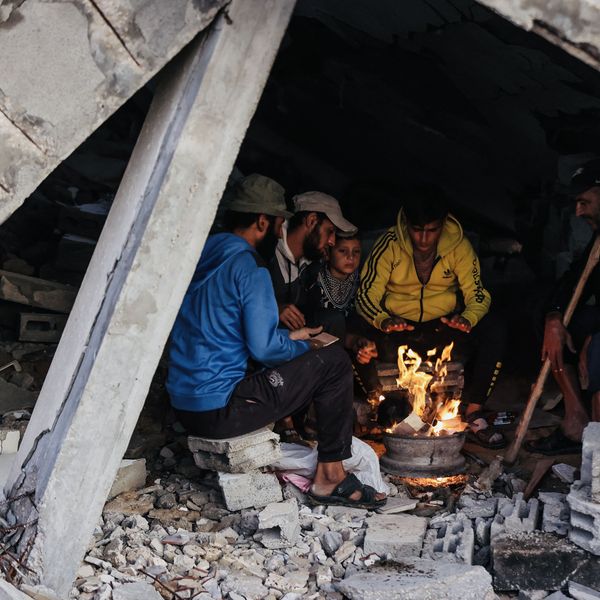A national day of
protests and strikes swept Israel and occupied
Palestine Monday as demonstrators filled the streets to voice their opposition to Israel's Prawer '
ethnic cleansing' Plan that would forcibly evict and displace up to
70 thousand indigenous Palestinian Bedouins from the Naqab/Negev region in southern Israel.
Street protests spread through major Palestinian cities and towns Monday, including Ramallah, Gaza City, Hebron, and Nablus.
A 700-strong protest in the southern Israeli city of Be'er Sheva, under the banner of "The Prawer Plan will not pass," blocked a major thoroughfare and was shut down by police, who arrested at least 14 people.
Palestinian communities shuttered many commercial establishments Monday in a strike endorsed by the Arab Higher Monitoring Committee, but not the PLO. Photos show Palestinian marketplaces sitting closed and empty.
Israel's Prewar Plan, passed in the Knesset in late June, aims to displace tens of thousands of Bedouins and destroy 35 "unrecognized villages," forcing Bedouins into government resettlement villages.
The Adelah Legal Center for Minority Rights in Israel says the Prawer Plan, if implemented, would be "the largest single act of forced displacement of Arab citizens of Israel since the 1950s."
Israeli Prime Minister Benjamin Netanyahu called the Prawer Plan a necessary step to put an end to "illegal building by Negev Bedouin."
Yet, Bedouins declare that Israeli zoning laws deem their indigenous communities illegal in order to create legal justification for ethnic cleansing of the Negev.
Bedouins, native to Israel's southern Naqab/Negev desert, used to number nearly 100,000. Since the 1948 expulsion of Palestinians--known as the 'Nakba, or 'great catastrophe'--Israel has used arguments of illegality to carry out forced evictions, raids, and demolitions of homes and schools, making it near impossible for Bedouin villages to develop livable infrastructure.
Some Bedouins refer to this as the 'constant Nakba.'
"There are no paved roads, no schools, no electricity or water grids, no telephone lines, and no sewage system," Amir Qweider, a student at Ben Gurion University who lives in the unrecognized village of Zarnouq, told Electronic Intifada. "The difference between the Jewish settlements and Arab villages is the embodiment of racial discrimination, even though we both are Israeli citizens."
The Prawer Plan moves forward despite 'complete rejection' by Bedouin communities.
_____________________



